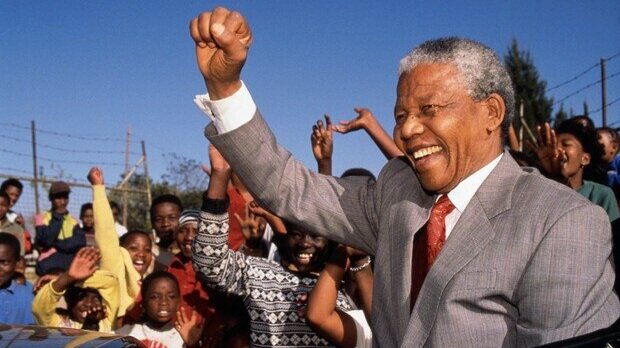Invictus: South Africa's Unconquerable Soul
South Africans have lived through several days of protests and looting. With more than 100 people dead, this marks the deadliest period of violent unrest since the end of South Africa's infamous apartheid regime in 1994. What sparked this week's chaos and which organizations are working to solve the country's toughest challenges?
The match.
The pandemic hit South Africa hard and while the government responded swiftly, the virus exposed historic government weaknesses and shone a light on existing poverty. South Africa's treasury says that they are making steady gains, but unemployment has increased to more than 32 percent and at least half of the country is living in poverty. The third wave of COVID-19 in Africa has ushered in more economic uncertainty and death. Economist Xhanti Payi told Al Jazeera, "People are under a lot of pressure and crime and lawlessness has always been a risk in the South African economy."
The spark.
Former South African President Jacob Zuma, who served in the role from 2009-2018, turned himself into the authorities last week to start his 15-month prison sentence. As part of an ongoing corruption investigation in which he faces 16 criminal charges, Zuma refused to appear in court and was charged with contempt. Under his presidency, the African National Congress (ANC) party's leadership was accused of murdering vocal opponents and destroying government systems for personal financial gains. This is a stunning end to the legacy of a once-revered freedom fighter who fought against apartheid with Nelson Mandela.
The fire.
Mired in criminal charges, why does anyone still support Zuma? He advocates for economic redistribution to end poverty and his supporters are often from families and communities that have been impoverished since apartheid. Pro-Zuma protests quickly turned violent and dozens were killed, some were trampled to death as people began to loot grocery stores and malls. The South African government has deployed the military and some residents are begging looters to consider the impacts on their strained economy. A hotel worker who lost his job during pandemic shutdowns had a different opinion, telling the New York Times, “If it means we are going to a mall to loot or to block a road for the government to actually hear people’s cries, then so be it.”
Help Habitat for Humanity. Extreme poverty will always be a catalyst for unrest. Habitat South Africa notes that "South Africa is one of the world’s most unequal societies with approximately 12 million South Africans living in extreme poverty." The country's growing population and economic constraints have made it hard to ensure everyone has safe housing. Habitat South Africa works in critical areas, including:
1.) Construction:They build homes in partnership with local construction companies for vulnerable groups and employer-assisted housing projects.
2.) Advocacy: Habitat South Africa improves the lives of South Africans by advocating against systemic barriers to affordable housing.
You can learn more about their development work and volunteer to help and/or donate here.
Sunday, July 18th will be Nelson Mandela Day. The Nelson Mandela Foundation says, "The essence of Mandela Day – take action, inspire change, and make every day a Mandela Day – is more important than ever before." What can you do to honor his legacy on #MandelaDay2021? The Foundation suggests taking action against poverty. To learn more about Nelson Mandela, check out this biography and timeline and read one of his favorite poems by English poet William Ernest Henley, which he frequently recited while imprisoned, Invictus.




